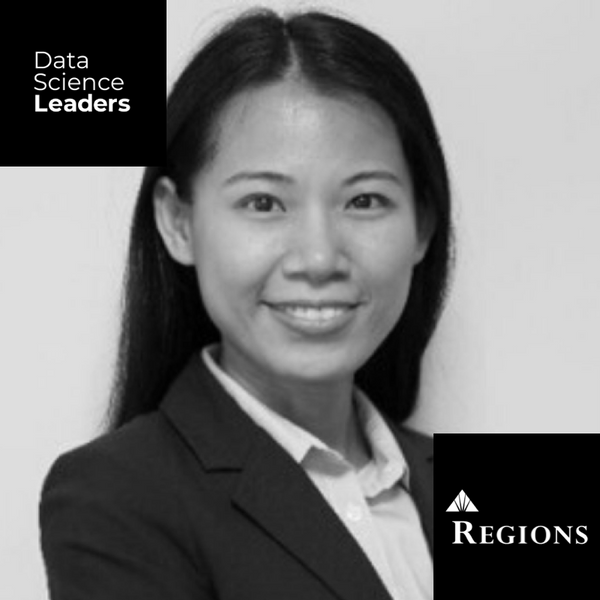episode 30
Change Management: Winning Over AI Skeptics in Banking & Beyond
Data Science Leaders | 18:03 | December 08, 2021

Listen how you want
Get new episodes in your inbox
As compute capability continues to expand, the banking industry is turning more and more to data science to enable better customer experiences.
Use cases have proliferated, from product recommendation engines to predictive customer retention alerts. These innovations can drive real business value, but managing the rollout of process and technology changes always presents interesting challenges.
In this episode, Chun Schiros, SVP, Head of Enterprise Data Science Group at Regions Bank, reveals how her team is leveraging AI solutions to optimize the banking experience. And with insight applicable to data science leaders in any industry, she shares her change management tips for driving adoption of machine learning among data skeptics.
We discuss:
- How data science use cases have evolved in the banking industry
- AI solutions in banking that optimize the customer experience
- Change management tips for winning over data science skeptics
Popular episodes

James Cham
Partner, Bloomberg Beta
EPISODE 71April 11, 2024
Unlocking the disruptive potential of generative AI: a VC perspective
Listen Now | 28:49
Volodimir Olexiouk
Director of Scientific Engagement and Data Science Team Lead, BioLizard
EPISODE 70March 28, 2024
Overcoming the data challenges of AI-driven drug discovery
Listen Now | 36:49
Rahul Todkar
Head of Data and AI, Tripadvisor